Search
Remove Ads
Advertisement
Summary 
Loading AI-generated summary based on World History Encyclopedia articles ...
Search Results
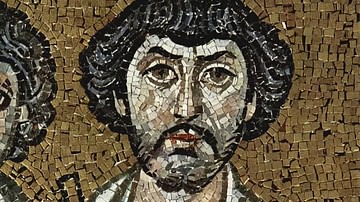
Definition
Belisarius
Flavius Belisarius (l. 505-565 CE) was born in Illyria (the western part of the Balkan Peninsula) to poor parents and rose to become one of the greatest generals, if not the greatest, of the Byzantine Empire. Belisarius is listed among the...

Image
Belisarius
Belisarius may be this bearded figure on the right of Emperor Justinian I in the mosaic in the Church of San Vitale, Ravenna, which celebrates the reconquest of Italy by the Byzantine army under the skillful leadership of Belisarius. The...
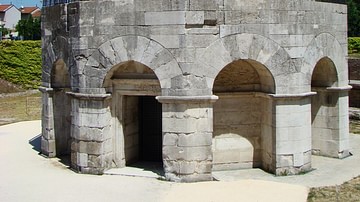
Definition
Ostrogoth
The Ostrogoths were the eastern tribe of the Goths (a Germanic people) who rose in power in the area north of the Black Sea. The designation, Ostrogoth, taken to mean 'Eastern Goth', actually means 'Goths glorified by the rising sun' and...
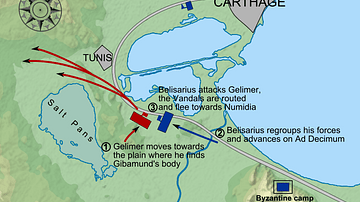
Article
Battle of Ad Decimum
The Battle of Ad Decimum near Carthage, North Africa took place in September 533 CE and was the first major battle of the Vandalic War (533 - 534 CE) between the forces of the Byzantine Empire and the Vandal Kingdom. Leading the Vandals was...
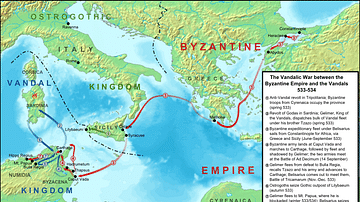
Article
Battle of Tricamarum
The Battle of Tricamarum (533 CE) was the second and last major battle of the Vandalic War (533 – 534 CE). The battle was fought between the forces of the Byzantine Empire under the leadership of the general Belisarius (500 – 565 CE) and...
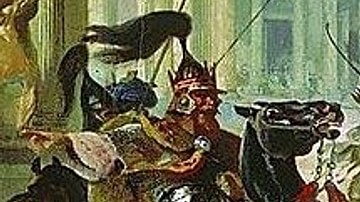
Definition
Vandals
The Vandals were a Germanic tribe who are first mentioned in Roman history in the Natural History of Pliny the Elder (77 CE). The Roman historian Tacitus also mentions them in his Germania (c. 98 CE), though he also refers to them as the...
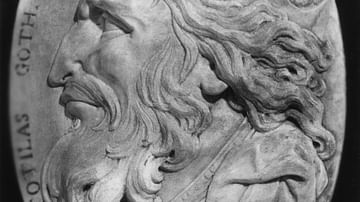
Definition
Totila
Totila (birth name, Baduila-Badua r. 541-552 CE) was the last great king of the Ostrogoths in Italy. He was the nephew of the Gothic king Ildibad who was succeeded by Eraric the Rugian (d. 541 CE). The Goths of Italy felt that Eraric was...

Definition
Kosrau I
Kosrau I (r. 531-579 CE) was the greatest king of the Sassanian Empire (224-651 CE) in virtually every aspect of his reign. He reformed the military, the Persian government, expanded his territories, engaged in large-scale building projects...
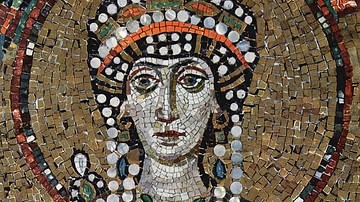
Definition
Empress Theodora
Theodora reigned as empress of the Byzantine Empire alongside her husband, Emperor Justinian I, from 527 CE until her death in 548 CE. Rising from a humble background and overcoming the prejudices of her somewhat disreputable early career...
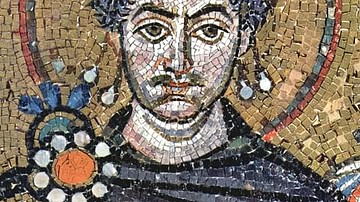
Definition
Justinian I
Justinian I reigned as emperor of the Byzantine Empire from 527 to 565 CE. Born around 482 CE in Tauresium, a village in Illyria, his uncle Emperor Justin I was an imperial bodyguard who reached the throne on the death of Anastasius in 518...